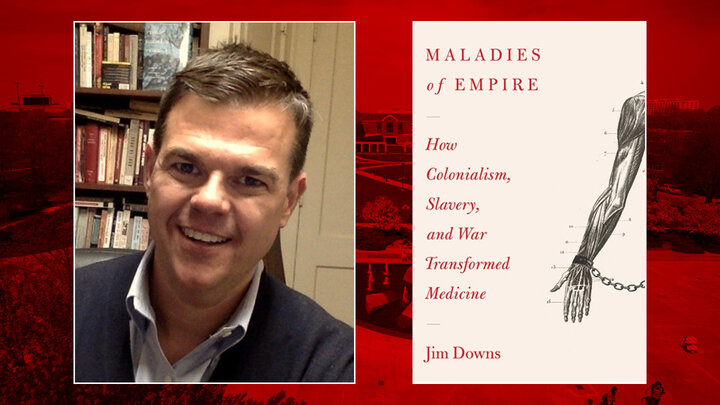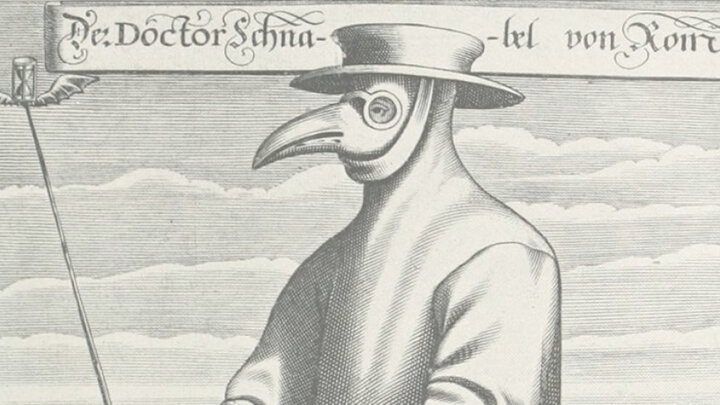Jim Downs, author of Maladies of Empire: How Colonialism, Slavery, and War Transformed Medicine, will give the annual Linda and Charles Wilson Humanities in Medicine lecture April 13. The event, free and open to the public, will be held at the Sheldon Art Museum in the Ethel S. Abbott Auditorium at 3:30 p.m.
In this talk, Downs rethinks the history of epidemiology by uncovering the untold ways that slavery, imperialism, and war created built environments—ships, plantations, and battlefields—that enabled physicians to study the spread of infectious disease. Drawing on archival records from around the world, he has uncovered evidence of how doctors developed epidemiological methods before John Snow's infamous investigation, which traced the outbreak of cholera to a water pump.
While medical thinkers since Aristotle have studied epidemics, his lecture will show how the confluence of slavery, imperialism, and war gave way to the creation of a massive bureaucracy that enabled doctors to develop a bird's eye view of an epidemic. These unprecedented networks allowed physicians to share information about infectious disease among subjugated populations, which led to the first ever Epidemiological Society in 1850. His research highlights the stories of patients and subjugated populations who produced new forms of medical knowledge. Most interestingly, Downs explains how the transatlantic slave trade enabled doctors to prove the existence of oxygen.
Downs is currently the Sheila Biddle Ford Foundation Fellow at The Hutchins Center for African and African American Research at Harvard University. He is also Gilder Lehrman NEH Chair of Civil War Era Studies and History at Gettysburg College in Pennsylvania and a partner at HISTORY STUDIO. He is the author of three other books and the editor of four anthologies, including Civil War History. He has published articles and essays in The Atlantic, The New Yorker, Slate, Vice, The New York Times, The Washington Post, The Chronicle of Higher Education, and The L.A. Review of Books, among others.



